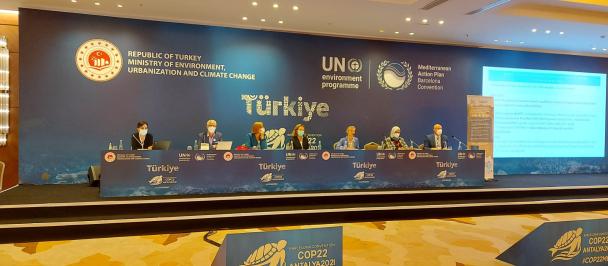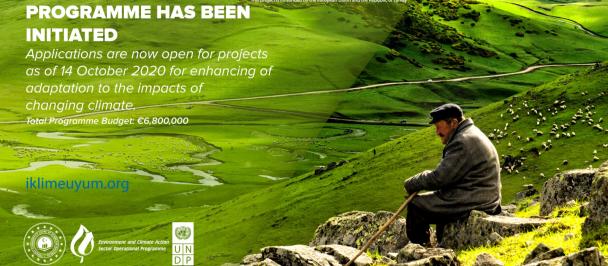Turning the lionfish problem into a main course
June 19, 2023

UNDP promotes an edible solution to a potent threat to native fish and coastal biodiversity
Fethiye, 19 June 2023 – The lionfish, a small predator that is native to the warm waters of the Indo-Pacific, has expanded its presence in the Mediterranean over two decades and is now commonly found in Turkish coastal waters, threatening native species and the rich aquatic biodiversity of coastal Türkiye – a biodiversity that is important to the country’s coastal communities and tourism industries. The invasive alien species, with its venomous spines and fearsome appearance, consumes native species – recent studies indicate that stocks of native Turkish fish species such as melanur, bream, coral and parrot fish are at greatest risk.
With few options to contain the invasion, the United Nations Development Programme (UNDP) is aiming to take a literal bite out of the problem by promoting the catching and eating of lionfish. Last week in Fethiye, a coastal town on Türkiye’s popular Turquoise Coast, divers, sport fishers and community leaders held a lionfish contest and culinary event to raise awareness of the threat of invasive species in Turkish waters.
Overall, more than 25 divers, and journalists and local residents joined the two-day event including the lionfish tournament, seminars taught by marine biology experts and a banquet where a gourmet chef presented five different lionfish dishes to curious diners. The UNDP Marine Invasive Alien Species (MarIAS) initiative, implemented jointly with the General Directorate of Nature Conservation and National Parks in the Ministry of Agriculture and Forestry, hopes that lionfish tournaments and banquets may catch on in other at-risk coastal areas, building a public campaign that it is hoped can slow the lionfish expansion.
“Ocean warming brings in more and more alien species and increases the range of predators like the lionfish along Türkiye’s coastlines and in the Mediterranean,” said UNDP Türkiye Resident Representative Louisa Vinton. “Local species and the biodiversity of Türkiye’s internationally-recognised coastal waters are at risk. Reducing the effects of invasive species and protecting our biodiversity worldwide are key to efforts to achieve the Sustainable Development Goals and to save our planet.”
The US$3.3 million MarIAS project has been working to enhance the resilience of marine and coastal ecosystems by combatting invasive alien species in Turkish waters with the active participation of marine fisheries experts, biologists, and coastal communities. Among hundreds of alien species found in Turkish waters, 105 are deemed invasive species and are considered threats to native fish populations.
“We need to include the lionfish in our diets,” said UNDP Türkiye MarIAS Project Manager Mehmet Gölge. “When the venomous spines are properly removed, the lionfish is edible, nutritious and tasty. Hunting and consuming invasive alien species such as the lionfish will not eliminate the problem in its entirety, but it is a step forward in protecting the precious marine biodiversity and fisheries of Türkiye.”
In the upcoming months, UNDP Türkiye will organise additional culinary events in other regions and cities of Türkiye to encourage the consumption of the invasive fish – helping to protect Türkiye’s globally significant native marine biodiversity.
The MarIAS initiative is funded by the Global Environmental Facility, a multilateral fund providing grants to protect the earth’s climate, biodiversity and environment from threats such as invasive species.
For more information
Umut Dulun, Communications Associate for UNDP in Türkiye, umut.dulun@undp.org

 Locations
Locations

